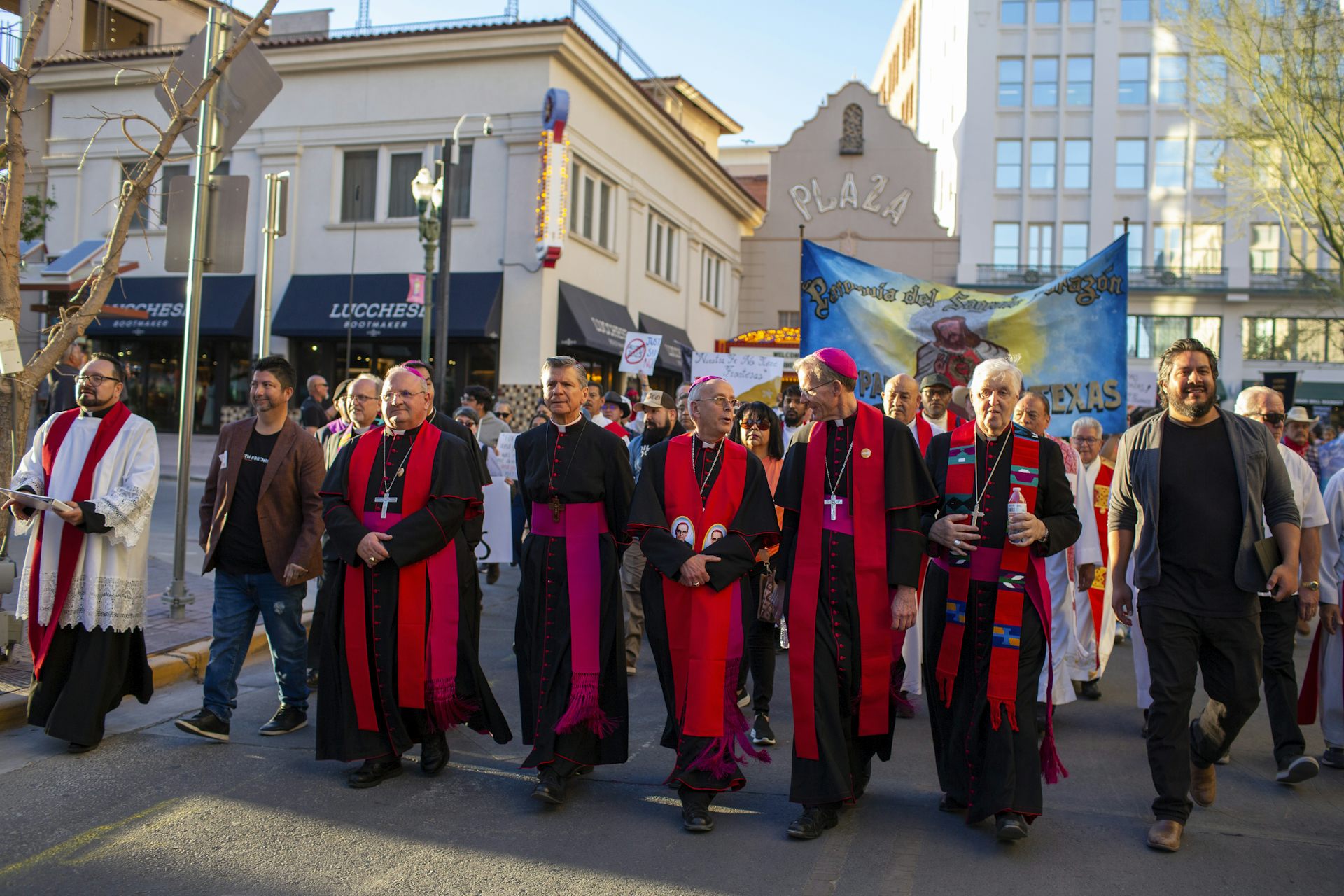
(The Conversation) — Catholic priests across the U.S. discuss immigration with their congregations more than leaders in many other faith traditions, according to our new research published in the journal Sociological Focus.
Catholic priests also said they discussed immigration more than nearly all other political issues, including hunger in their communities, capital punishment, health care and the environment. Abortion was the only one priests discussed slightly more often.
Our study, which uses data from the 2022 National Survey of Religious Leaders, found that 71% of Catholic priests surveyed said they spoke about any political issue with their congregations. Among them, just over half talked about immigration.
In white conservative Protestant congregations, Black Protestant congregations and non-Christian congregations, only about a quarter of leaders who discussed political issues said they talked about immigration. Leaders of white liberal Protestant congregations, however, talked about the topic almost as much as Catholic leaders did.
Why it matters
The United States has a long history of religious leaders addressing political matters, on both the left and the right – and today is no different.
With immigration raids on the rise across the country and an unprecedented level of funding approved for deportations, Catholic bishops in the U.S. are speaking out. Many of them have called for compassion and care for migrants and the need to uphold human dignity and due process, regardless of someone’s immigration status – in line with Catholic social teaching.
As sociologists who study politics and religion, we wanted to know what is happening on the ground in congregations. Given the church’s teachings about caring for the vulnerable, we expected that Catholic clergy might be particularly likely to speak out.
However, the percentage of people affiliated with a religious congregation is decreasing, and those who do attend are increasingly politically conservative. Rank and file Catholics are very divided on their support for immigrants, according to a 2024 national survey by the Center for Applied Research in the Apostolate.
In this context, we were curious about whether clergy would discuss a political issue such as immigration with their congregations or say they avoid it altogether.
What still isn’t known
The survey we used is from 2022, before some of today’s immigration enforcement policies took effect. That said, these findings demonstrate that immigration was on the radar for Catholic leaders before the recent changes under the current administration.
Because we focused on survey data, we got a good picture of trends among Catholic leaders nationwide. However, we could look only at whether religious leaders reported discussing immigration; we could not know exactly what they said, or how. There is much more to learn about what kinds of political messages come from the pulpit today and what messages tend to stick with congregants.
We did find that Catholic leaders of congregations where the majority of worshipers are Hispanic were much more likely to talk about immigration, compared with leaders of non-Catholic Hispanic congregations and Catholic leaders of mostly white congregations. Because Hispanic communities in the U.S. are facing the brunt of the immigration crackdown, this finding shows that Catholic leaders have been addressing the needs of their communities.
What’s next
Catholic parishioners may be exposed to different opinions about immigration from religious and political leaders. Diane, one of the authors, is furthering this research by conducting interviews with Catholics in Greater Boston. By asking church members to talk through their attitudes toward immigrants, we can learn more about how people make sense of complicated ethical questions.
The Research Brief is a short take on interesting academic work.
Evan Stewart does not work for, consult, own shares in or receive funding from any company or organization that would benefit from this article, and has disclosed no relevant affiliations beyond their academic appointment.
(Evan Stewart, Assistant Professor of Sociology, UMass Boston. Diane Beckman, PhD Candidate in Sociology, UMass Boston. The views expressed in this commentary do not necessarily reflect those of Religion News Service.)
![]()
